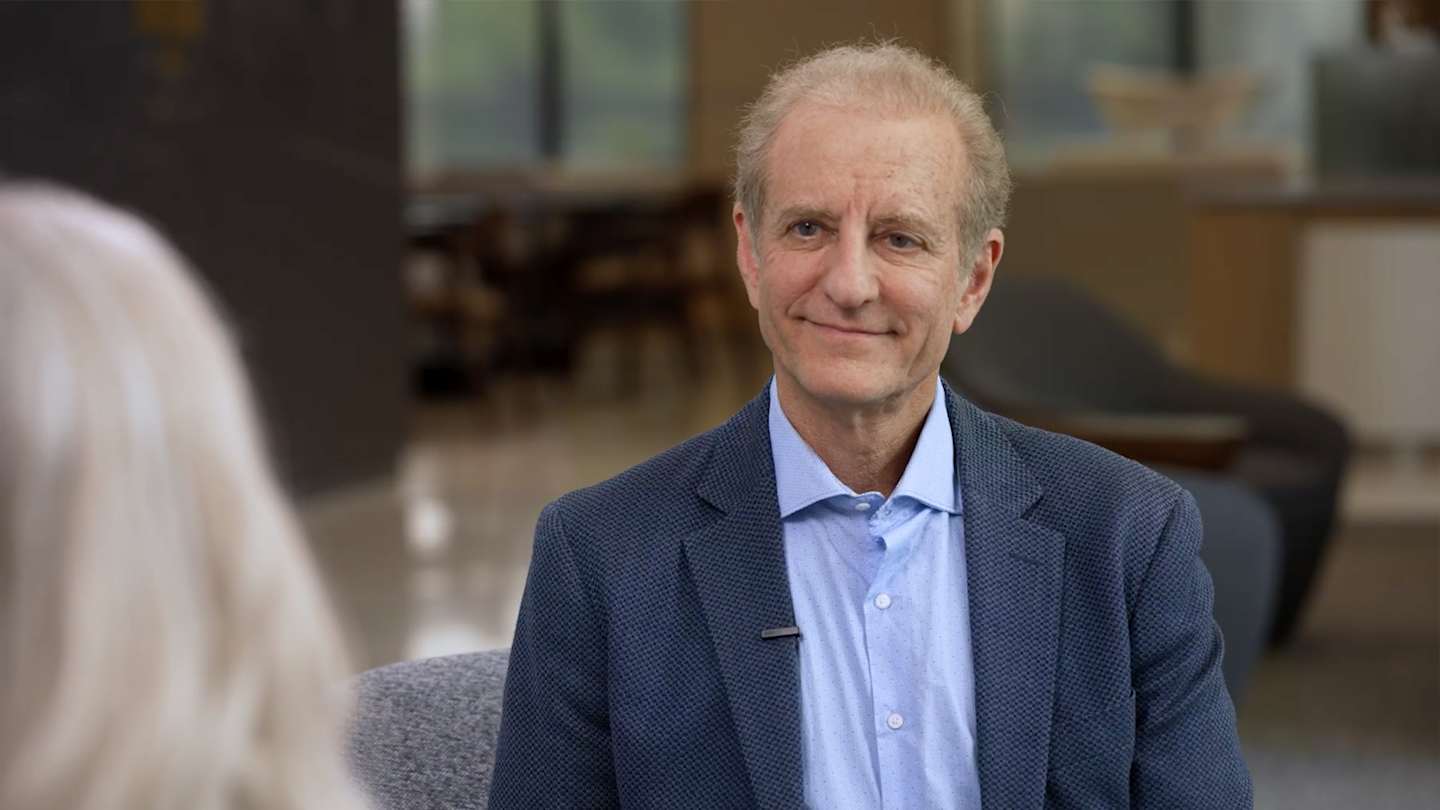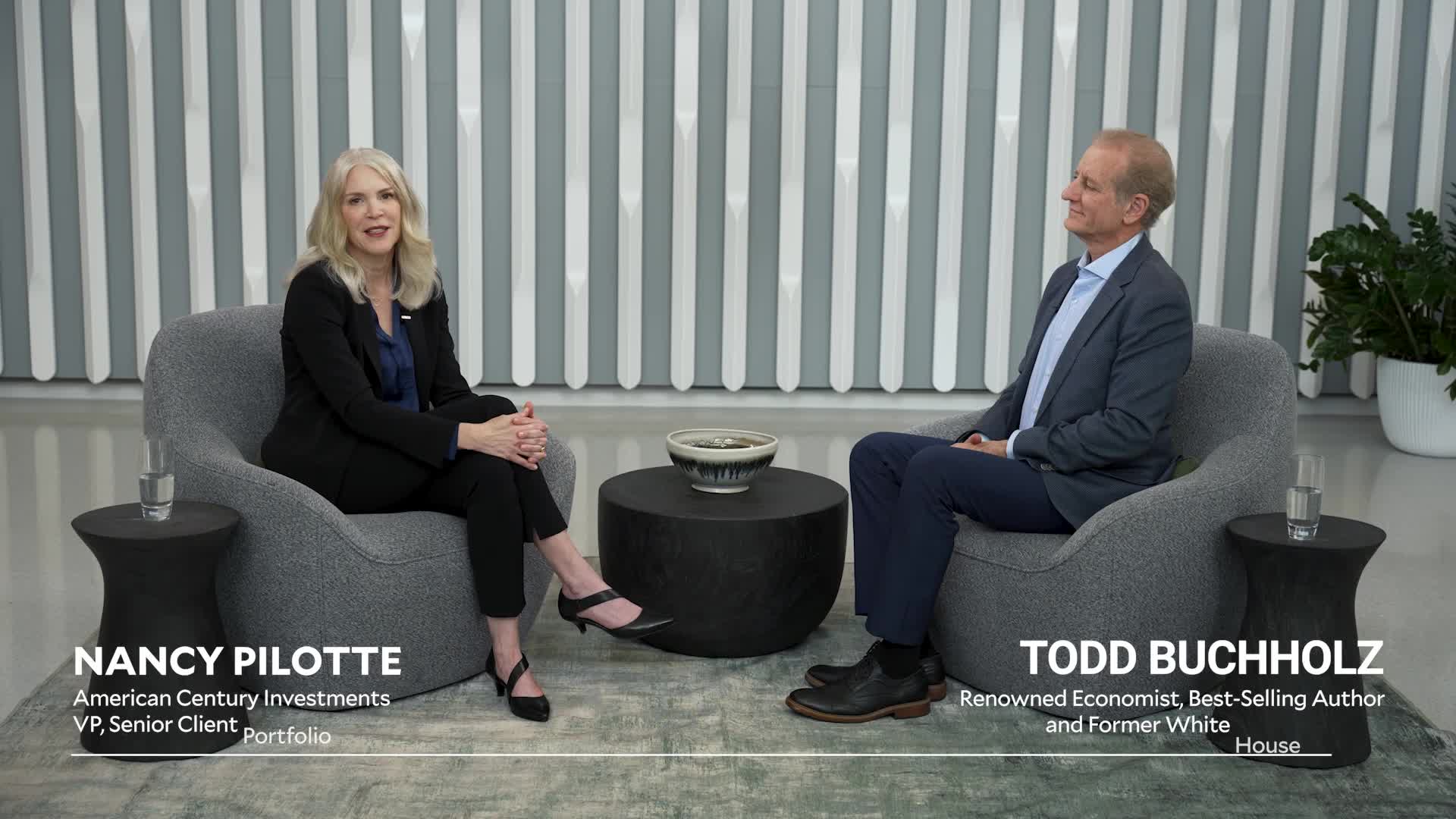Reimagining Tomorrow’s Markets
Prominent economist and author Todd Buchholz connects the dots between Wall Street, Main Street and Pennsylvania Avenue.

“The U.S. economy is a marvel when you think about its resiliency,” stated Todd Buchholz, former White House economic advisor and hedge fund director. Looking beyond the policy “food fights” in the nation’s capital, Todd offers a more nuanced view on the current economic landscape and the pivotal topics on investors’ minds.
Watch the replay to get Todd’s take on the economy, investing and the trends poised to shape tomorrow’s markets. Read a few highlights below.
“With good humor, Buchholz throws light into the dark corners of our everyday economy.” —FORBES

Originally broadcast June 12, 2025
A Fresh Perspective on Key Issues
Edited excerpts from our conversation with Todd Buchholz
Tariffs: Art of the Deal?
The question the White House has not made clear is whether tariffs are intended to be high and here to stay or whether they're the biggest bargaining chip on the global stage at the moment. And there's great uncertainty. Within the White House itself, there are divisions among advisors—that’s reflected in the sometimes inconsistent statements and the levying of tariffs and then the pulling back.
If you want lower inflation and lower interest rates, it's hard to argue that high tariffs are going to lead to lower prices, which would then permit the Federal Reserve Board to cut interest rates. So there's another inconsistency there. Then there's the question: What are the prospects for bringing manufacturing back to the U.S.?
I do think that more manufacturing can come back to the States, but we have to remember that manufacturing uses far less labor than it used to. Can we bring manufacturing back or increase it in the U.S.? Yes. How many jobs will that create? There's a real question that's hard to answer.
Rethinking Our Relationship With China
I think there's a real question about the extent to which the U.S. in the long term is reliant on China. China has some deep problems that it's facing up to in demographics and otherwise. Numerous companies have now realized that Chinese labor rates are no longer a bargain, and that's why they're moving manufacturing to India, to Cambodia, to Laos, to Vietnam. I don't think that the U.S. is as dependent on China as many people seem to think. Sure, it is in a year's time, over the next couple of years, but I don't think 10 years from now.
End of U.S. Exceptionalism?
I don't believe the exceptionalism is over … It’s true that European stocks and others have outperformed the U.S. this year, and the U.S. dollar has lost some of the massive gains it enjoyed over the past 10 years. But then you ask yourself, where are the most successful companies in the world? You can go through various sectors of the global economy and see that it is U.S. companies that are continuing to lead the way.
The U.S. has weakened. It can't continue to go straight up, and the uncertainty and chaos that have been let loose by debates over tariff policy and back-and-forth threats have certainly given investors pause. But I think it's given investors, say, four months of pause, and I don't think that it's going to continue for very long.
I do think investors need to ask themselves, “What are the best ways to take advantage of growth abroad?” Perhaps a better way to put money abroad is to look at U.S. companies that do a lot of business abroad. And if the dollar is in fact falling, that means that they will be more successful in selling U.S. goods abroad.
Reconsidering Cryptocurrency in Portfolios
When you look at it today, now several years later, you see that basically nobody really uses crypto to buy products and services. It really is just a store of value, a place to put money, hoping that it appreciates. So that's a very different proposition than the original concept that it would replace money.
It's a collector's item, which doesn't mean you're not going to make money on it. It just means that it's not serving the purpose it was originally intended to, or at least one of the primary purposes for which it was intended.
Transformative Trends
No. 1 is health. People are living longer. For the first time in decades, the obesity crisis may actually be receding. From the year 2000 to 2020, obesity rates went up by about one-third—that is roughly 30% of the population was classified as obese in 2000. By 2020, it was 40% of the population. Last year, for the first time, that number has actually, excuse the pun, shrunk.
It is probably related to these new advanced drugs, the so-called GLP-1 inhibitors under which people seem to lose 15% of their weight. And it's not simply losing weight. They become healthier in other respects. This actually has an implication for the financial markets because of companies that make devices for cardiac care, for diabetic care, for knee braces and so on. As people are less obese, they're less likely to have their knees buckle and need knee surgery. So there, there are various impacts from this, but the overall trend is actually looking positive, not negative.
More on Government Policies and Financial Markets
Stay informed on how politics and government policies are shaping the economic landscape.
American Century Investments prepared this summary based its understanding of the presentation. There is no guarantee as to its accuracy or completeness.
The views expressed in this presentation are the speaker’s own and not necessarily those of American Century Investments. This presentation is for general information only and is not intended to provide investment, tax or legal advice or recommendations for any particular situation or type of retirement plan. Please consult with a financial, tax or legal advisor on your own particular circumstances.
Todd Buchholz is not affiliated with American Century Investments.
International investing involves special risks, such as political instability and currency fluctuations.
Investment return and principal value of security investments will fluctuate. The value at the time of redemption may be more or less than the original cost. Past performance is no guarantee of future results.